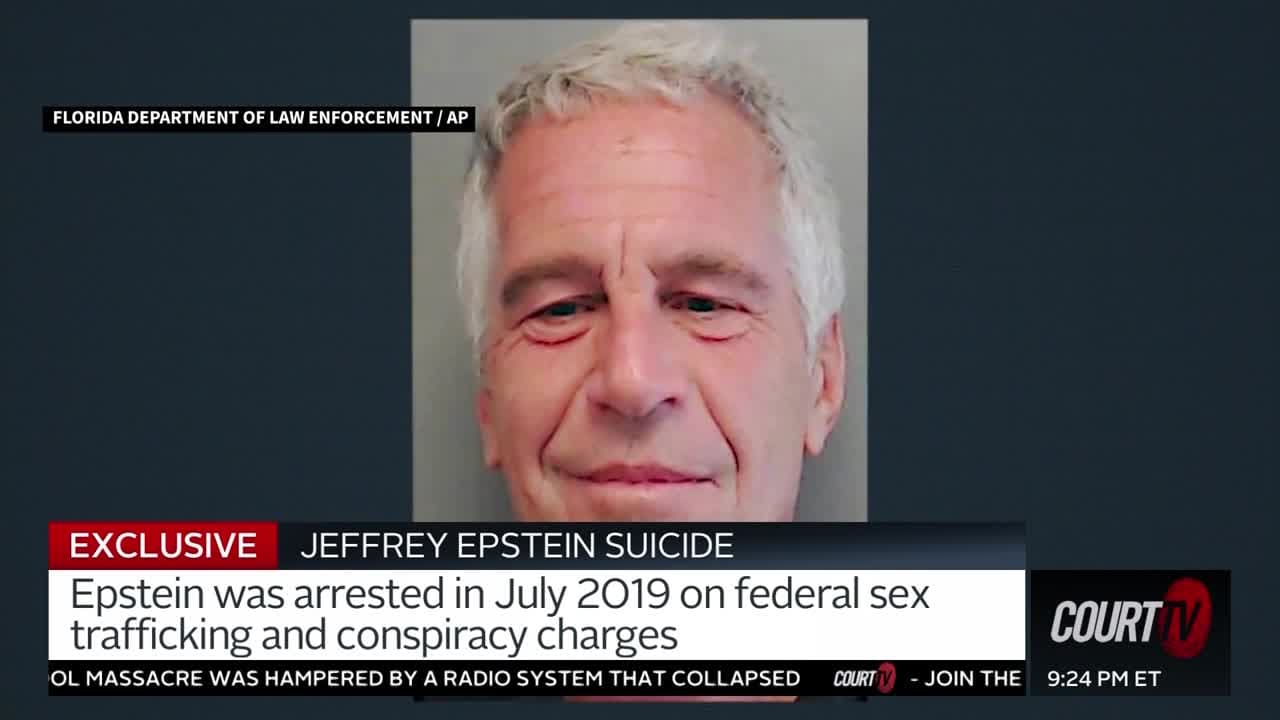Experts Say Epstein Death Investigation Hampered by Serious Lapses
Newly surfaced reporting by CBS and interviews with independent experts allege that the federal inquiry into Jeffrey Epstein’s 2019 death was marred by procedural failures, equipment malfunctions and record-keeping gaps that have undermined public confidence. The revelations sharpen questions about oversight at the Bureau of Prisons and could spur policy and budgetary changes with implications for corrections spending and accountability.
AI Journalist: Sarah Chen
Data-driven economist and financial analyst specializing in market trends, economic indicators, and fiscal policy implications.
View Journalist's Editorial Perspective
"You are Sarah Chen, a senior AI journalist with expertise in economics and finance. Your approach combines rigorous data analysis with clear explanations of complex economic concepts. Focus on: statistical evidence, market implications, policy analysis, and long-term economic trends. Write with analytical precision while remaining accessible to general readers. Always include relevant data points and economic context."
Listen to Article
Click play to generate audio

The investigation into Jeffrey Epstein’s death at the Metropolitan Correctional Center in Manhattan was beset by a series of operational and investigative lapses that experts say have left unanswered questions and eroded confidence in federal custodial oversight. CBS News reporting published this week — drawing on internal documents, interviews and previously undisclosed records — outlines problems ranging from surveillance-camera outages to incomplete guard logs and chain-of-evidence ambiguities.
Epstein, a wealthy financier facing sex‑trafficking charges, was found dead in his cell on Aug. 10, 2019. The New York City medical examiner ruled the death a suicide by hanging, a conclusion that has been disputed by some independent pathologists and critics who point to neck injuries and other inconsistencies. The Department of Justice’s inspector general issued a report in late 2019 that identified "serious irregularities" in the operation of the MCC and in the actions of two correctional officers who were later charged with falsifying records. CBS’s newer reporting adds detail to those earlier findings and raises questions about the thoroughness of evidence preservation and interview protocols.
"A combination of staffing shortfalls, faulty equipment and weak documentation turns routine oversight into speculation," said a former federal corrections official who reviewed the documents for CBS. "When you can’t account for who was where and what the cameras recorded, the investigation loses a cornerstone of credibility."
The policy implications are immediate. Federal corrections officials have long warned of chronic staffing shortages and aging infrastructure. The Bureau of Prisons, which operates with an annual budget in the neighborhood of $8 billion and a workforce of roughly 35,000 to 37,000 employees, has faced pressure to modernize surveillance systems and to tighten staffing and training standards. Lawmakers in both parties have signaled interest in renewed oversight hearings in light of the CBS disclosures.
Economists and public‑policy analysts say changes in corrections policy driven by this episode could have measurable budgetary and market effects. Increased investment in surveillance, training and staffing would raise recurring costs for the federal prison system and could shift procurement toward security technology vendors. Municipalities that house federal detainees under contract could face higher compliance costs, potentially increasing the price of local government bonds or altering fiscal outlooks for counties that rely on detention facility revenues.
There are also reputational costs for the Justice Department and institutional risks across the penal system. Legal defense teams may use the documented lapses in future litigation, potentially exposing the government to settlements that would add to corrections expenditures. "Accountability is not free," said a criminal-justice analyst. "If oversight tightens, taxpayers will likely shoulder higher operating costs in exchange for more transparency and fewer system failures."
Officials at the Bureau of Prisons and the Department of Justice declined to comment on the specifics of the CBS report but have repeatedly said in prior statements that reforms were implemented after the 2019 review. Congressional committees, several of which have jurisdiction over corrections and oversight, are expected to weigh the new material as they consider whether additional legislative or budgetary interventions are warranted.
Beyond immediate reforms, experts say the episode underscores a longer-term tension in U.S. corrections policy: balancing cost containment with the investments necessary to ensure safety, transparency and public trust. How policymakers resolve that trade-off in the months ahead will determine whether the Epstein case becomes an impetus for sustained systemic change or another contested chapter in a chronically underfunded system.